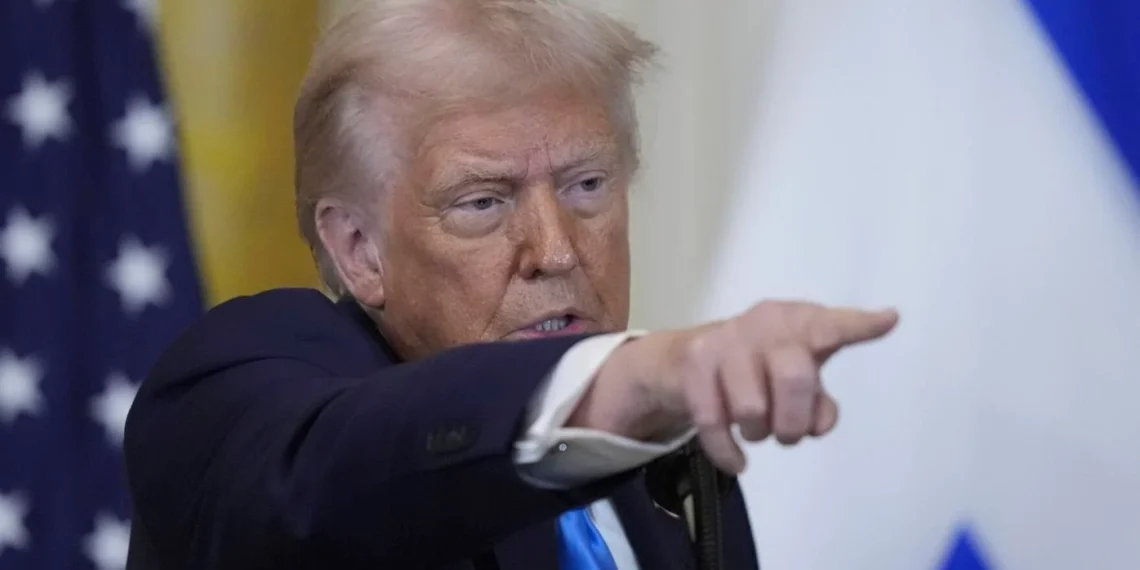President Donald Trump has ignited a political firestorm by launching an all-out assault on the United States Agency for International Development (USAID), accusing the organization of corruption and leftist influence. The unprecedented move has frozen billions in foreign aid, sidelined senior USAID officials, and triggered global concerns over the future of U.S. humanitarian efforts.
Trump, in his signature bold style, took to X (formerly Twitter), branding USAID as a “viper’s nest of radical-left Marxists who hate America.” This rhetoric has been backed by drastic actions, including blocking USAID funding, ordering a full-scale investigation, and entrusting oversight to the Department of Government Efficiency (DOGE), led by billionaire entrepreneur Elon Musk. The sudden policy shift has paralyzed USAID operations, leaving employees uncertain about their future. Reports from The Washington Post and NPR confirm that agency staff were recently told not to report to work, while the USAID website mysteriously went offline amid the upheaval.
While Trump’s administration has yet to present concrete evidence of corruption within USAID, it has repeatedly pointed to past controversies. Right-wing media outlets have accused the agency of mismanaging funds and indirectly supporting terrorist organizations. Critics argue that the administration’s aggressive stance is less about corruption and more about dismantling foreign aid programs to fund domestic initiatives under the “America First” agenda.
The global fallout from Trump’s crackdown is already visible. Humanitarian organizations like Oxfam and Amnesty International have warned that millions of lives could be at risk if USAID funding dries up, particularly in war-torn and poverty-stricken regions. The move has also sparked fierce opposition within Congress, with Democrats and even some Republicans calling Trump’s actions reckless and potentially illegal. Senate Minority Leader Chuck Schumer slammed the administration’s approach as “a direct attack on America’s global leadership and humanitarian commitments.” Legal experts caution that any attempt to dissolve USAID would require Congressional approval, setting the stage for a heated battle in Washington.
Beyond domestic resistance, Trump’s foreign aid freeze is shifting global power dynamics. With the U.S. retreating from its long-standing role as a top international donor, China is expected to step in, strengthening its global influence through expansive development projects under its Belt and Road Initiative. Foreign policy analysts warn that Trump’s approach could weaken U.S. diplomatic leverage, allowing rivals to fill the void in humanitarian assistance and economic aid.
Read also: Trump to become 1st incumbent president to attend Super Bowl
Meanwhile, USAID employees and advocacy groups are taking to the streets, staging protests outside the agency’s Washington headquarters. The growing backlash suggests that Trump’s attempt to reshape foreign aid could face significant legal and political roadblocks.
The administration remains tight-lipped about USAID’s fate. Some speculate that the agency could be absorbed into the State Department, while others fear it may be completely dismantled. What is clear, however, is that Trump’s relentless pursuit of government efficiency—spearheaded by Elon Musk’s DOGE—has put USAID on the brink of collapse.
As this high-stakes political drama unfolds, the future of U.S. foreign aid, global humanitarian efforts, and America’s standing on the world stage hangs in the balance. The coming weeks will be critical in determining whether Trump’s vision for “draining the swamp” at USAID becomes a reality—or a major foreign policy disaster.






